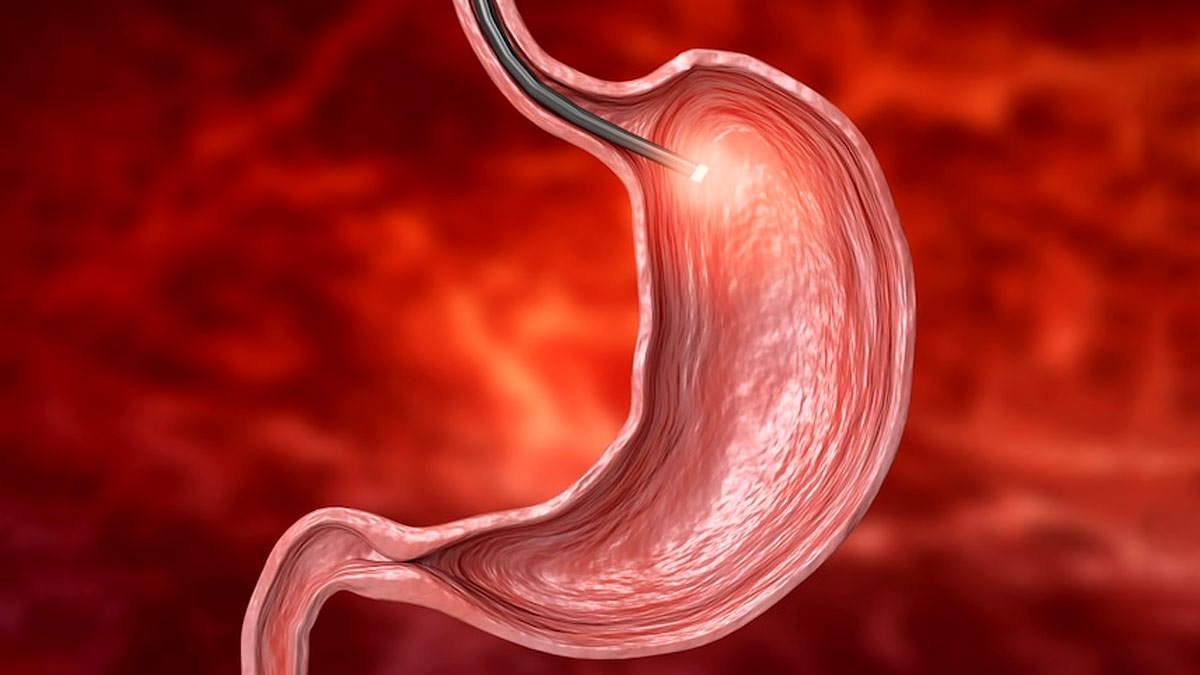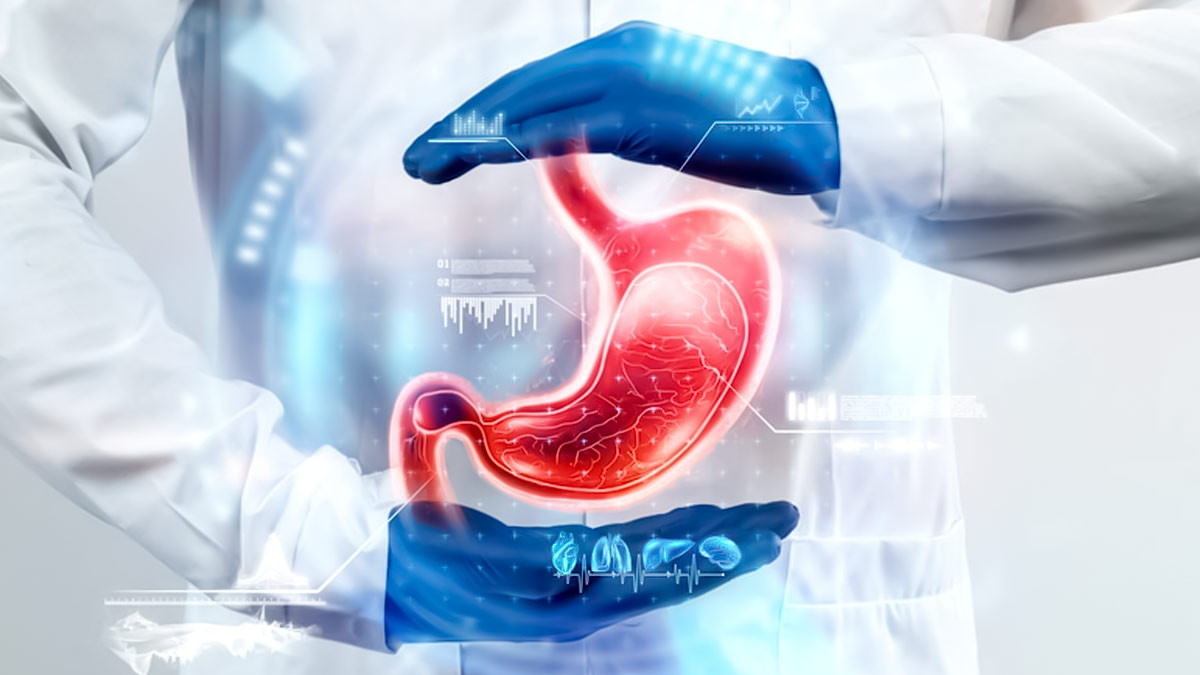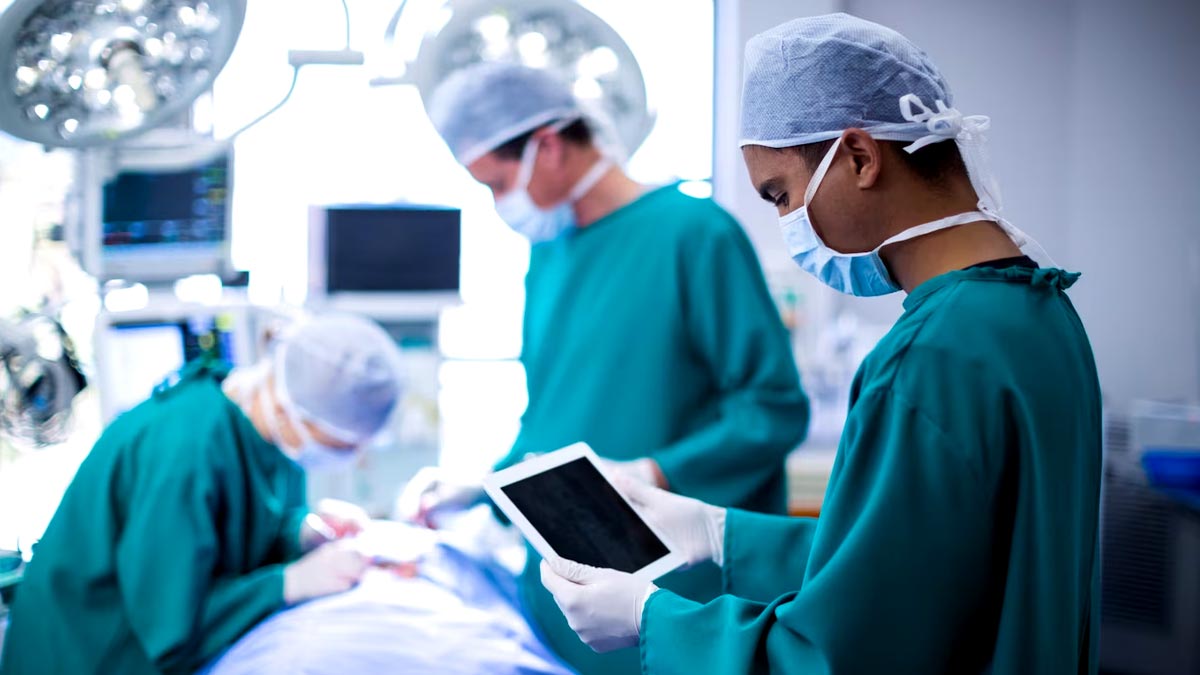
Gastrointestinal symptoms are one of the most common bodily problems. In most cases, stomach issues subside with home remedies and Over-The-Counter (OTC) medications. However, if the problems persist, advanced medical intervention, such as an endoscopy may be required. But what is an endoscopy and how does it help? Speaking with the OnlyMyHealth team, Dr Veerendra Sandur, Lead Consultant-Medical Gastroenterology and Hepatology, Aster RV Hospital, Bengaluru, shares answers along with how one can prepare for it.
Table of Content:-
What Is An Endoscopy?

“An upper endoscopy, also called an upper gastrointestinal endoscopy, is a procedure used to visually examine your upper digestive system,” says Dr Sandur, adding, “This is done with the help of a tiny camera on the end of a long, flexible tube. A specialist in diseases of the digestive system (gastroenterologist) uses an endoscopy to diagnose and sometimes treat conditions that affect the upper part of the digestive system.”
Also Read: Tired Of Feeling Bloated? Here's How You Can Prevent It Naturally
An endoscopic surgery breakthrough to the upcoming possibilities in treating patients with gastrointestinal problems. A study published in the Annals of Medicine and Surgery suggested a clinical success rate of endoscopy of up to 92.5% and an additional decompression tube at an 86% success rate.
When Do You Need An Endoscopy

Your provider may recommend an endoscopy procedure to:
Investigate symptoms, meaning that it can help determine what's causing digestive signs and symptoms, such as heartburn, nausea, vomiting, abdominal pain, difficulty swallowing and gastrointestinal bleeding.
In addition, it offers an opportunity to collect tissue samples (biopsy) to test for diseases and conditions that may be causing anaemia, bleeding, inflammation or diarrhoea. An endoscopy can also detect some cancers of the upper digestive system.
Most importantly, an endoscopy can be used to burn a bleeding vessel to stop bleeding, widen a narrow oesophagus, clip off a polyp or remove a foreign object.
Also Read: Why People Suffering From Persistent Acidity Should Avoid Beans: How To Consume It Safely
How To Prepare For An Endoscopy

To ensure a successful endoscopy procedure, one must prepare for it. Your doctor may may ask you to:
Fast before the endoscopy: You'll typically need to stop eating solid food for eight hours and stop drinking liquids for four hours before your endoscopy. This is to ensure your stomach is empty for the procedure.
Stop taking certain medications: You'll need to stop taking certain blood-thinning medications in the days before your endoscopy, if possible. Blood thinners may increase your risk of bleeding if certain procedures are performed during the endoscopy. If you have ongoing conditions, such as diabetes, heart disease or high blood pressure, your provider will give you specific instructions regarding your medications.
Tell your provider about all the medications and supplements you're taking before your endoscopy, recommends Dr Sandur.
Planning Recovery
According to Dr Sandur, most people undergoing an upper endoscopy will receive a sedative to relax them and make them more comfortable during the procedure.
“Plan ahead for your recovery while the sedative wears off. You may feel mentally alert, but your memory, reaction times and judgement may be impaired. Find someone to drive you home. You may also need to take the day off from work. Don't drive or make any important personal or financial decisions for 24 hours,” the doctor recommends.
How we keep this article up to date:
We work with experts and keep a close eye on the latest in health and wellness. Whenever there is a new research or helpful information, we update our articles with accurate and useful advice.
Current Version
